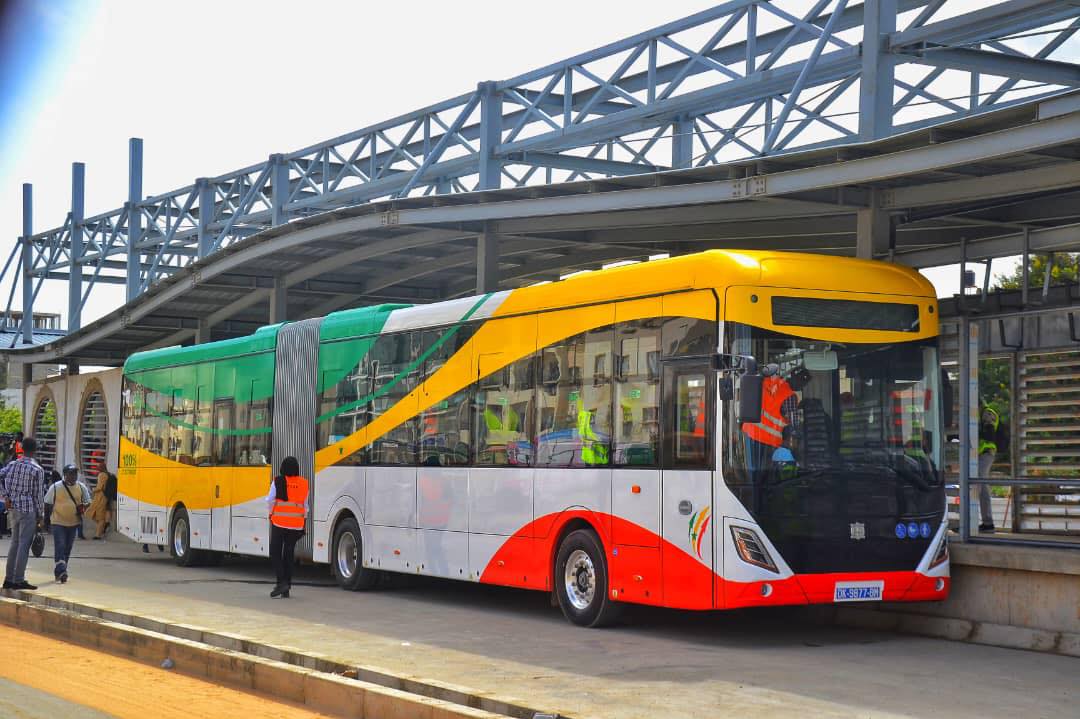Dakar, the capital of Senegal, has achieved a significant milestone by introducing Sub-Saharan Africa’s first electric Bus Rapid Transit (BRT) network.
This pioneering approach in transport geography is set to revolutionise the urban transport landscape, offering a reliable, affordable, and eco-friendly alternative to traditional public transport models.
Read also: Kenya electric vehicles receive special green number plates
Overview of Dakar’s BRT network
This new BRT network in Dakar has 3 large stations and 23 mid-stop stations along an 18.3 km stretch. This vast network will cater to up to 300,000 passengers daily, considerably reducing traffic jams, especially in this city. It also offers a quicker and more dependable means of transport.
Electric buses are sustainable; they help reduce carbon emissions into the atmosphere, a sustainable development goal.
Economic and environmental impact of Dakar’s BRT system
It will also be a welcome development for the citizens and the government of Dakar for the introduction of the BRT system, which would go a long way in enhancing the economic status of the country.
The work the project has started has also led to the development of more than a threshold number of employment, including drivers, cleaning, and administrative positions. Second, adopting electric buses also symbolises the city’s intention to embrace sustainable development by cutting air pollution through electric technology.
Read also: Ethiopia’s e-mobility strategy aims for EV adoption
Under this undertaking, the move creates a severe precedent in the entire region, with Dakar leading the way in promoting determined sustainable transport.
Constructing the BRT network marks a turning point. Apart from building suitable awareness that would enable widespread adoption of the system when needed, ongoing investment in the infrastructure and suitable maintenance are also crucial for efficient implementation. Still, the long-term benefits listed above—less traffic congestion, lower greenhouse gas emissions, better public health—should make it profitable.
One of the most creative proposals to present a fresh perspective on SSA’s urban transport system is to build a new electric BRT system as a new method of mobility in Dakar. Apart from that, Dakar is raising the people’s living conditions through well-coordinated public transit and simultaneously building a brighter future using a green strategy.




